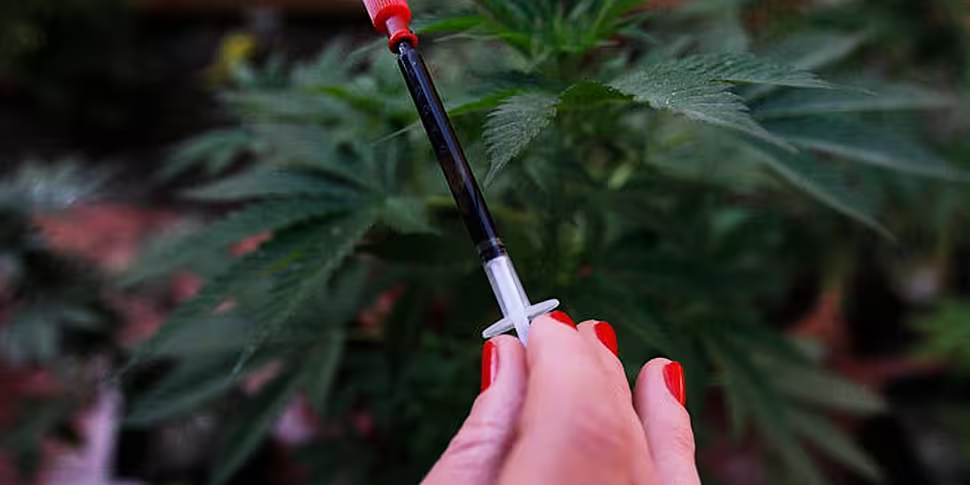An oil derived from the marijuana plant has for the first time been scientifically proven to reduce violent seizures in young people suffering from a rare form of epilepsy.
The study is the first to scientifically prove that Cannabidiol or - CBD oil - is a safe and effective treatment for sufferers of Dravet Syndrome – a rare an debilitating form of epilepsy.
The condition is a rare, catastrophic, lifelong form of epilepsy that begins in the first year of life with frequent and often prolonged seizures.
Seizures have been known to be so long-lasting that they require emergency care and can be fatal.
The condition can also see children developing poorly – with behavioural and developmental delays and movement and balance issues.
Campaign for access
The results will provide more hope to parents and patients who have been campaigning for greater access to the cannabis-based medication.
One such campaigner is mother, Vera Twomey who marched from her home in Cork to Leinster House in March to highlight the difficulties faced by her seven-year-old daughter Ava who suffers from the condition.
Ms Twomey has insisted that Ava’s quality of life has been dramatically improved through the use of CBD oil – and has called for access to a stronger product containing Tetrahydrocannabinol (THC).
THC is the ingredient in the cannabis plant that provides a high – however at low levels it has been shown to be effective in treating conditions like Ava’s.
Earlier this month, gardaí were called in to remove Ms Twomey from a sit-down protest over access to the medicine outside the main gates of Leinster House.
WATCH: Vera Twomey removed from her sit down protest by Gardai pic.twitter.com/xwqrURooHy
— Páraic Gallagher (@paraicgallagher) 4 May 2017
Ms Twomey also travelled to Spain to purchase a three month supply of the drug that had been prescribed by a doctor in Barcelona – however the medicine was confiscated on her return to Dublin Airport.
Significant reduction in seizures
The new study, published in the New England Journal of Medicine yesterday, found that CBD oil cut the average number of monthly convulsive seizures in 52 children suffering with the condition from 12.4 to 5.9.
The study found that 5% of patients stopped having seizures altogether and 43% saw their seizures cut by half.
Of the 56 children who were given a placebo, the average number of seizures dropped by a far smaller amount - from 14.9 to 14.1.
The average age of the children involved in the study was just under 10-years-old.
Study lead Dr Orrin Devinsky told the Associated Press that the results provide the “first solid, rigorously obtained scientific data" that a marijuana compound is a safe and effective method for treating the condition.
He said the oil was found to be an effective treatment, but warned it was not a panacea or cure-all for the children.
While the frequency of seizures was reduced, some of the children experienced side effects included vomiting, diarrhoea and loss of appetite.
Commercial sales
The study used a new version of the oil - developed by GW pharmaceuticals of London - called Epidiolex.
The company paid for the study and one doctor involved holds ownership of some related patents.
It will now file the drug with US Food and Drug Administration by the middle of this year, with a filing for Europe following a little later in 2017.
Shares in the company have more than doubled since news of the study began to emerge ahead of yesterday’s publication.
Analysts on average now expect annual sales of the medicine to reach $1.6 billion by 2023, according to data from the Thomson Reuters foundation.
Earlier this year, the Health Minister, Simon Harris announced that he would establish a Cannabis Access Programme based on the recommendations of a review undertaken by the Health Products Regulatory Authority (HPRA).









